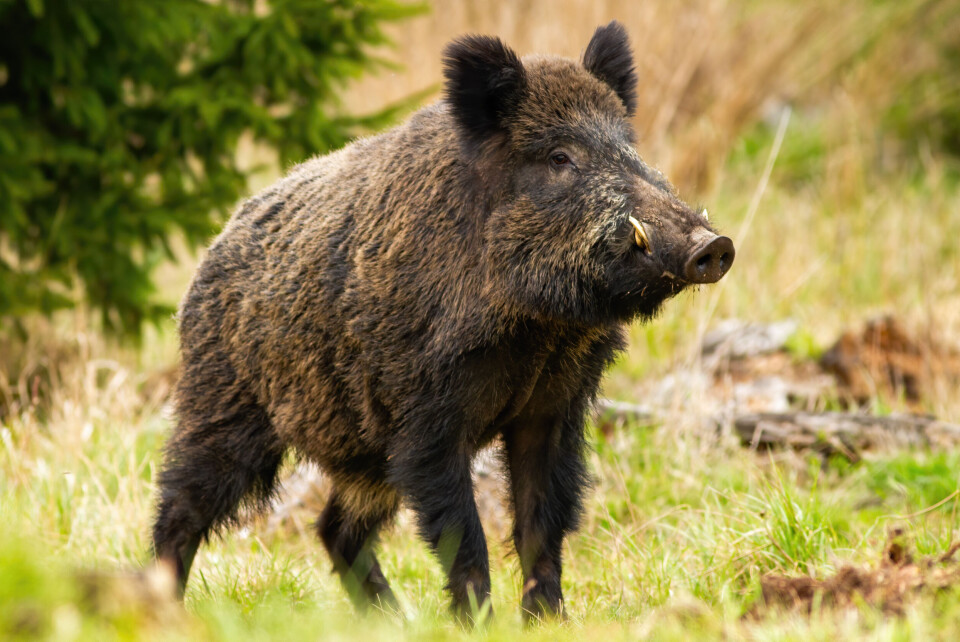-
Occitanie copper phase-out ramps up – how it will affect residents
There are some simple steps you can take to prepare for the switchoff
-
Which cars are stolen the most in France and why?
Perhaps surprisingly, the higher-end vehicles are not the most targeted
-
Several wolf sightings in centre of Frejus, Var
Rules have been relaxed around shooting wolves that threaten livestock
Wild boar approach homes in south of France out of hunger and thirst
Experts say the sight is not unusual but may have increased with this year’s drought. There are disagreements over who should pay for boar-related damage

Wild boar have been approaching houses in the south of France out of hunger and thirst as hot weather continues in the region.
The towns of Draguignan, Saint-Raphaël and Fréjus (Var) have been particularly affected. The boar have been seen coming close to homes and attempting to find food in rubbish bins.
One Draguignan resident, Jacques Cartier, came home after midnight one evening to find a wild boar foraging in a bin bag outside of his home. He captured it on video while still inside his car, and simply wished the animal “bon appétit”.
He said: “I had never seen one before, this is the first time. I was on my drive. It was on its own. He had good tusks. When I got out of my car, he was gone. This is the only unfenced area in the residence.”
However, Mr Cartier said he was not too surprised to see an animal foraging for food, saying that he often sees foxes “roaming everywhere at night near the houses”.
Boar are a rarer sight, although the hot temperatures in recent weeks have prompted them to seek food and water closer to homes than usual.
Valérie Fernandez Sibilli, a market gardener in Fréjus, has noticed the same phenomenon on her farm.
In a Facebook post, she said that she had seen boar roaming in her fields, and even seen them entering the village, appearing relatively tame.
She said: “In the village, they walk around during the day. They are no longer wild. At night, I've seen four or five of them at Petit Défend, in a district of Saint-Raphaël, when I go to deliver my vegetable baskets.”
Wild boar are omnivorous, which means that they eat everything.
Ms Sibilli added: “They are quite clever with their paws. They cut the watermelon in half and eat the inside. As for the courgettes, they only eat half of them.
“They’re not shy. I have dogs, but they’re not afraid of dogs. We’re kind of used to living with them now. We're kind of living in their home, too.”
‘Not unusual’
Biodiversity assistant Michel Niveau, at the Office de biodiversité dans le Var, (OFB) told France 3 that the situation is “not unusual”.
He said: “It's common throughout the year, in Fréjus, Saint-Raphaël, to see them near the houses. They are not shy, when they go to feed near humans, they are used to it.”
He receives several emails a day about their presence, he said, adding that people’s reactions can vary significantly. “There are people who feed them and others who think it's good to kill them,” he said.
Bruno Giaminardi, director of the Var hunters' federation, said: “We see boar all year round, but this rise in sightings may be linked to the drought. But wild boar populations adapt to all types of environments. They can even become peri-urban or completely urban.”
Controversial populations
Boar can be controversial due to their propensity to cause damage in urban and farming areas.
Read more: French towns take action as urban wild boar sightings soar
Wild boar numbers are generally regulated close to cities in France via official hunts with specially-authorised hunters. Individual shooting may also be permitted to protect crops, sometimes at the request of the local mairie.
However, the boar population is continuing to increase, with hunting group la Fédération Nationale des Chasseurs (FNC) estimating that there are now three million of them in France.
Read more: Debate over wild boar hunts in France after one runs into public pool
Read more: Wild boar numbers spike in France due to confinement
The Var department has one of the top-five wild boar populations in France, with problems especially common nearer to the coast. This is because it is one of the most wooded departments in France. Wild boar naturally live and breed in wooded areas, but can venture kilometres away to find food.
The group is especially worried about the rising population because the FNC is supposed to pay for any damage that boars cause to farm fields and crops. This regulation dates back to 1968, but the FNC says it should no longer apply.
There were 21,000 killings last year in Var, the director of the department’s hunting federation said.
He said: “The hunting period runs from June 1 to March 31 of the following year. We set up hunts in the municipalities that have damage problems.”
Related articles
How to repel wild boars in France: try juniper wood oil
Hunters use bows and arrows to cull boar in southwest France
























